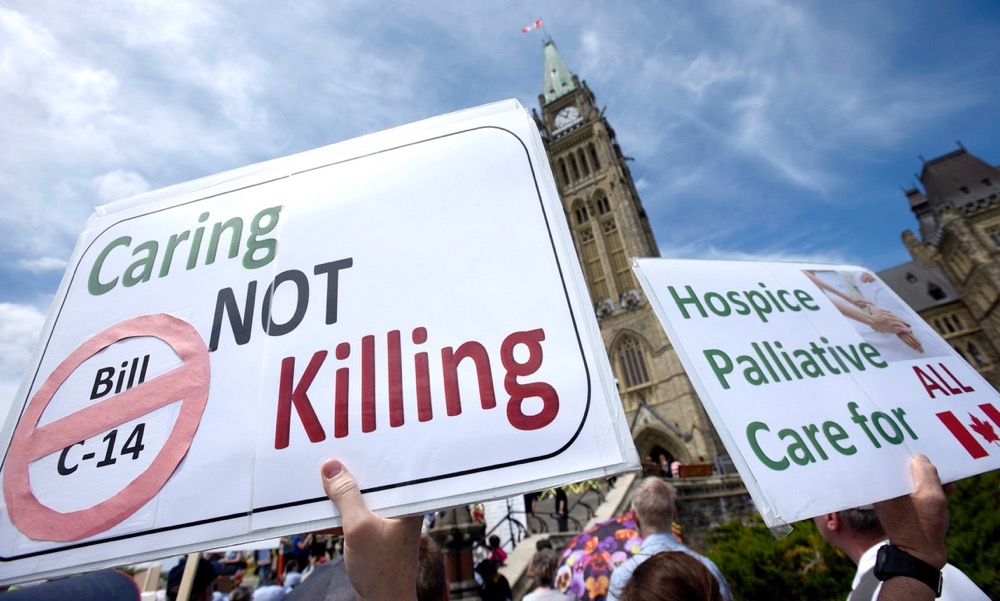Care Not Killing has urged the British Medical Association to review its new guidance on the withdrawal of clinically assisted nutrition and hydration (CANH) from brain-damaged patients.
The UK-based alliance that brings together around 50 organisations expressed “disappointment” and “concern” with the guidance that spells out the circumstances where clinical staff can withdraw CANH without having to go to the Court of Protection if deemed to be in the patient's "best interests".
This will affect up to 24,000 patients with permanent vegetative state (PVS) and minimally conscious state (MCS). The guidelines can also apply where patients are suffering the effects of severe strokes and dementia.
Care not Killing said: "People with PVS (awake but not aware) and MCS (awake but only intermittently or partially aware) can breathe without ventilators but need to have food and fluids by tube (clinically assisted nutrition and hydration or CANH). These patients are not imminently dying and with good care can live for many years. Some may even regain awareness. But if CANH is withdrawn, then they will die from dehydration and starvation within two or three weeks."
The guidelines spell out how, since 1992, it has been established in law that CANH is a form of medical treatment, rather than a facet of basic care. However, decisions about CANH have historically been treated differently, in some respects, to decisions about other forms of life-sustaining treatment.
"In order to demonstrate that the patient’s interests have been thoroughly considered in relation to CANH, and to provide reassurance to those close to patients and the wider public, some additional levels of scrutiny have traditionally been applied to these decisions. One example of this is the belief, until 2017, that all decisions to withdraw CANH from a small group of patients – those in permanent vegetative state (VS) or minimally conscious state (MCS) – needed to be authorised by the Court of Protection. In July 2018, the Supreme Court confirmed that there is no requirement to seek approval from the Court of Protection where there is agreement as to what is in the best interests of the patient, and where the Mental Capacity Act 2005 and good practice guidance have been followed. This brings these cases into line with decisions about CANH in other groups of patients and with decisions about other forms of life-sustaining treatment."
Key factors that determine the appropriate level of scrutiny include the prognosis, the level of certainty with which this can be predicted and the impact of making the “wrong” decision for an individual patient, resulting either in CANH being withdrawn too soon – thus depriving the patient of an opportunity to live a life they would value – or of it being continued for too long – forcing the individual to continue a life that they would not have wanted.
The guidelines state: "Legally, family members cannot give consent to, or refuse treatment on the patient’s behalf unless they have been formally appointed as a health and welfare attorney. Although not the decision-maker, they do have a crucial role in providing information about the patient as part of the best interests assessment." They also advise: "Health professionals should ensure that their personal views do not influence the way in which clinical information is presented or affect their attitude towards those, including family members, who do not share their views. A health professional who is unable, for reasons of personal beliefs, to make or implement a best interests decision to withdraw, or to continue, CANH should recognise this as a potential conflict of interest and hand over this aspect of the patient’s care to a colleague."
Steve Fouch, acting Campaign Director of Care Not Killing, said: “It removes an important safeguard from those without a voice and makes no allowance for emotional and financial pressure that loving families and medical staff will come under, whether perceived, or real.
"It costs about £100,000 per year to care for a person with PVS or MCS, a total cost of around £2.4 billion annually and we all have heard how the NHS is struggling. It is important therefore that we don’t add to this pressure medical staff and administrators are under, no matter subtle.”
The new guidance comes succeeds the rules established after the Tony Bland case in 1993. Under them the Court of Protection approved the removal of CANH from more than 100 people, but also rejected some applications. "This is why Care not Killing opposes the removal of this important independent safeguard," said Mr Fouch.
He continued continued: “This guidance makes no difference in principle between turning off a ventilator and removing a feeding tube as both are ‘forms of medical treatment’. It also fails to treat patients with PVS and MCS differently to people with ‘severe stroke’ a ‘degenerative neurological condition’ or ‘other conditions with a recognised downward trajectory’.
“It fails to recognise the latest peer reviewed research from the American Academy of Neurology (AAN), the world’s largest association of neurologists and neuroscience professionals, which just this summer published a paper detailing the difficultly in reliably diagnosing the extent of brain damage in patients.”
A summary of this study together with an accompanying literature review was published online in August 2018 in the medical journal Neurology. The study found four in 10 people who are thought to be unconscious are actually aware. One in five people with severe brain injury from trauma will recover to the point that they can live at home and care for themselves without help. The study went on to recommend that the term PVS should be dropped.
Care Not Killing also emphasised the advances that are being made in the treatment of some acute brain injuries, such as brain cooling techniques, intracranial pressure monitoring and neurosurgery, as a reason to be cautious.
Mr Fouch said: “It is important that doctors and clinicians follow the latest medical practice, and this should be based on high quality evidence. What the latest research highlights is the complexity of reliably diagnosing PVS and MCS."
He said there is a "clear difference" between turning off a ventilator on a brain-dead patient and removing CANH from a brain-damaged patient, or those on a downward trajectory.



 Loading ...
Loading ...